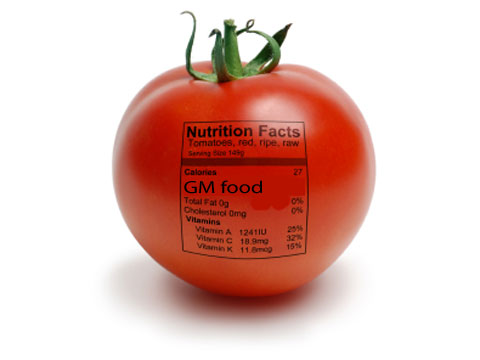Amidst rising awareness of food and energy challenges several realities about the UK are becoming clear to environmentally-minded people.
First, forestry is much neglected; secondly big arable (i.e. grain) and animal farming dominates UK food production; and thirdly our importation of fresh vegetables remains substantial and a point of vulnerability.
I believe we can work towards a significant solution to the latter - namely cropping in the winter months in our mild coastal areas. My own experience of market gardening has certainly convinced me of the potential for seasonal extension without resorting to trashing the soil.
From the first serious frosts in perhaps November leafy cropping ceases in most areas until the spring. This is due to temperature but also low light levels and short days. We are essentially a country at a high northern latitude but blessed with major exposure to the Gulf Stream. The warm seas of the latter mean that several coastal strip areas experience only limited and light frosts in most years. This is a significant opportunity.
The key areas, many of which also have fertile soil, run from Cornwall to Kent, the Isle of Wight, the Channels Isles, Pembrokeshire, the Gower Peninsula and Strangford Loch in County Down. While there is still production in these areas, volumes and morale amongst producers are low. Traditional markets have shrunk as cheap fuel enabled access to cheaper production further south. Tastes have also favoured 'Ratatouille' crops in recent years. Power has moved from producers to multiple retailers with efficient logistics.
Learning to love polytunnels
While the warmed area may only run one or two miles inland, large amounts of produce can be raised in relatively small areas. The current sources of crops (e.g. Andalucia, Portugal, Sicily, Morocco, Kenya) will always use significantly more energy to get to our plates. Produce grown in the Rift Valley is particularly destructive, and makes further serious conflict there likely.
The solution is not as straightforward as merely moving production from one location back to Blighty. We must also grow and eat seasonal crops, so french beans and aubergines won’t work in Cornwall in March but cauliflowers and globe artichokes will.
If we allow ourselves the significant leg-up of polytunnels or glasshouses in those sites sheltered enough to survive the worst south-westerly winds then the cropping range is further expanded. For example, spinach growing moves south in the autumn because it is cheaper, but could be harvested here in the UK under protected conditions.
The public antipathy towards polytunnels is unfortunate because, as Eliot Coleman and other pioneers have shown, they are very energy efficient. They gain much from providing a simple barrier to wind chill, but also use recyclable materials and are cost effective. With 70 million people to feed, can we do without them?
Sources of soil fertility are also important under protected conditions, often being brought in from outside the growing system. The likely demise of cheap nitrate and phosphate fertilisers will preclude their use, so efficient composting should be encouraged and reuse of sewage nutrients and energy has to be resolved. Throwing them away won’t remain an option.
A change in thinking
Some first steps might involve moving all salad production back to the UK (but no Iceberg lettuces in December!), forsaking Spanish 'broccoli' (actually calabrese) in favour of purple sprouting brocolli, and making courgettes, asparagus and broad beans significant polytunnel crops. We would certainly have to accept less choice, but then this would be a seasonal menu: the acclaimed world cuisines of Lebanon and Italy would not think it a problem. Few restaurants in the UK now have any notion of a predominantly seasonal menu.
So what to do. Policy measures could immediately help, but continued oil prices at $100+ a barrel might well force our hand. However, acting before that happens is much more prudent, as horticultural units cannot be switched on overnight.
The planning system could be used in several constructive ways. First, by identifying useful coastal areas and applying agricultural restrictions on land use. We cannot afford the inequity of second homes when we need growers far more. Secondly, by using existing support payments to favour production based on a balance of nutrients produced and inputs consumed. Thirdly, by modelling growing scenarios around oil and nitrate fertiliser at higher prices and noting production effects.
We need to act now. Societies that chopped down their forests, pandered to their elites and had little foresight or planning, as Jared Diamond has shown in his book Collapse, have always failed. A seasonal, sustainable cuisine would be something to be proud of.
Adam York is one of founders at Unicorn Grocery Ltd and Glebelands Market Garden Ltd, Manchester. He is also a committee member of the Organic Growers Alliance and recently moved to coastal SW Wales
| READ MORE... | |
 |
HOW TO MAKE A DIFFERENCE Saving and rebuilding community shops Mourning the loss of your beloved local shop? With a little help from the Community Shops Network, you can set up and run your own shop and post office... |
 |
NEWS FSA accused of running PR exercise for GM industry Member of steering group resigns claiming the Food Standard Agency's (FSA) £500,000 public dialogue on genetically modified (GM) food is ignoring key issues about GM feed and labelling |
 |
NEWS Small-scale beekeepers threatened by colony losses Continuing high winter losses in bee colonies is prompting fears about future of hobby beekeeping |
 |
GREEN LIVING Peat free compost: why to use and which to buy An avid gardener road-tests two brands of peat free compost, and gives you a recipe to make your own |
 |
GREEN LIVING Creating a Forest Garden: working with nature to grow edible crops Excerpts from the new book telling you everything you need to know about this novel way to grow edible crops - where nature does most of the work for you. |





